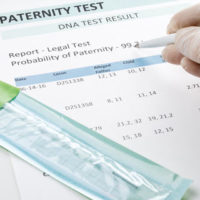Timesharing Rights for Unmarried Fathers

Enjoying the rewards of parenting a child is an experience many people welcome, and the law grants parents’ rights over their children so they can provide necessary care and guidance. For married couples, the question of who is the legal parent of a child is easy. The law automatically recognizes the husband and wife as the parents at a child’s birth because of the marriage, reflecting the public policy of promoting legitimacy for the child. Unmarried fathers, on the other hand, do not get this benefit, and must establish paternity before they have any rights to see or exercise authority over a child. For obvious reasons, a woman who gives birth to a child is presumed to be the biological and legal mother, but such certainty is not available for fathers. How easy it is to establish paternity is largely dependent upon the relationship between the mother and father. If the parents are still together or maintain friendly relations, filing a form may be all that is necessary. However, if the relationship is acrimonious or completely severed, the legal process becomes more complicated. In an unusual case, a man in West Palm Beach is challenging the Florida law that presumes a married man is a child’s father. The man fathered a child with a married woman, and the mother is completely denying him access to their son. An overview of one of the most common legal mechanisms used to establish paternity, and how to challenge paternity under Florida law will follow below.
Acknowledgement of Paternity
If there is no dispute over who is a child’s natural father, both parents can execute an Acknowledgement of Paternity declaring they are the natural parents and assume all the rights and responsibilities of this legal status, including the obligation of child support. This form must be signed by both parents and witnessed by two other people or a notary public. Hospitals typically provide these forms to new parents that are unmarried, or they can be obtained through the Florida Department of Health. Paternity becomes official after 60 days if neither party withdraws their consent. If a man decides to challenge paternity after the 60 day period passes, he must petition the court to disestablish the designation, which is only granted if the man can prove he signed the Acknowledgement of Paternity under duress, fraud or material mistake of fact – all of which are difficult to prove.
Genetic Testing and Challenging Paternity
If there is a question about a child’s paternity or a dispute between the mother and the alleged biological father, a petition must be filed with the court to establish paternity. This procedure is often used by unwed mothers seeking child support from the child’s father. In addition to presenting evidence about the nature of the parties’ relationship to show that the man is the likely father, the parties and child are typically required to submit to genetic testing. The results are used to determine if the child is biologically related to the alleged father. Test results that establish there is a 95 percent or greater probability that the man is the child’s father are treated by the court as a rebuttable presumption of paternity. A party can challenge the lab results, and if the court believes the challenge is reasonable, it will order additional testing. However, the party asking for this additional proof is responsible for paying the associated costs.
Consult a Family Law Attorney
Whether you are looking to establish paternity or deny it, the assistance of a family law attorney is needed to ensure your rights and obligations are properly protected. The Tampa law firm of Bubley & Bubley, P.A. understands the importance and sensitive nature of these issues, and will work to obtain the proper result. Contact us for a free consultation.
Resources:
wptv.com/news/region-c-palm-beach-county/west-palm-beach/biological-father-challenges-florida-law-stripping-him-of-parental-rights
floridahealth.gov/certificates/certificates/birth/_documents/DH_432_Ack_Paternity.pdf



